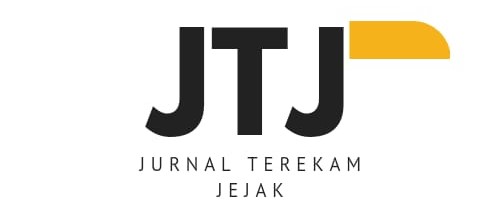The Influence of Social Media in Shaping Public Opinion on International Conflicts: Analysis of the Russia-Ukraine Conflict 2022
DOI:
https://doi.org/10.5281/zenodo.13373695Keywords:
Public Opinion, Russia and Ukraine Conflict, Social MediaAbstract
International conflicts are currently worrying information and receive special attention from all citizens of the world, one of which is the Ukraine and Russia Conflict. In this case, the public finds out information about the conflict through social media and provides sympathy for the conflicting countries, but then it is misused by various parties. Social media has an important role in global issues, one of which is the conflict between countries. Social media users in getting information on the Russian-Ukrainian conflict are presented with not only true news but also hoaxes or fake news. In conflict situations, false narratives are spread on social media by irresponsible parties that can influence public opinion and complicate understanding of the actual facts. This paper identifies the influence of social media in shaping public opinion towards an international conflict between Russia and Ukraine. Social media, which is very open, can indirectly become a forum for public discussion and convey the opinions of various points of view of social media users around the world in viewing the conflict. This can form diverse public opinions. This research uses a qualitative descriptive method, namely by conducting surveys through questionnaires and describing related phenomena. The delivery and receipt of information on social media must pay attention to its truth and be critical of the information obtained, and look for accurate sources of information to prevent receiving hoaxes. People who easily believe in opinions on social media, will easily be consumed by fake news, which will later lead to public opinion that does not match the facts. This means that social media users are required to think critically in receiving and dealing with opinions and responses on social media.
Downloads
References
Susetio, W., dkk.(2022). Perang Rusia-Ukraina: Mencari Keseimbangan Dunia Baru. Jurnal Abdimas, 8(5).
Subagyo, A. 2019. Media Sosial Dalam Hubungan Internasional. Jurnal Dinamika Global, 4(1). Doi: 10.36859/jdg.v4i01,99.
Choiriyati, S. (2015). Peran Media Massa Dalam Membentuk Opini Publik. Universitas Muhammadiyah: Lampung.
Muriyatmoko, D., Taufiqurrahman., Humam, A. (2022). Analisis Sentimen Masyarakat Terhadap Konflik Rusia dan Ukraina Menggunakan Metode Naïve Bayes pada Media Sosial Twitter. Metik Jurnal, 6(2). doi: 10.47002/metik.v6i2.375.
Syarief, F. (2017). Pemanfaatan Media Sosial Dalam Proses Pembentukan Opini Publik (Analisa Wacana Twitter SBY). Jurnal Komunikasi, 8(3).
Qarayeva, L., M. Yani., Setiabudi., W. (2021). Peran Media Sosial Sebagai Alat Propaganda Dalam Konflik Nagorno Karabakh Antara Armenia Dan Azerbaijan. Global Political Studies Journal, 5(2). DOI 10.34010/gpsjournal.v5i2.
Syahputra, E., Evangelina, M. (2022). Kerancuan Berpikir: Propaganda Publik Media Pro-Ukraina Dalam Situasi Perang Rusia-Ukraina 2022. Jurnal Sosial Humaniora, 2(2). DOI:https://doi.org/10.53/jsh.v2i02.616.

Downloads
Published
Versions
- 24.07.2024 (3)
- 22.07.2024 (2)
- 05.07.2024 (1)
Issue
Section
License
Copyright (c) 2024 Jurnal Terekam Jejak

This work is licensed under a Creative Commons Attribution-NonCommercial 4.0 International License.



